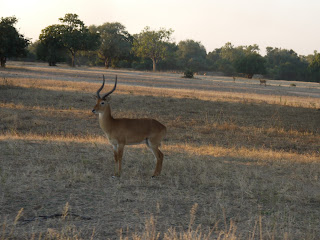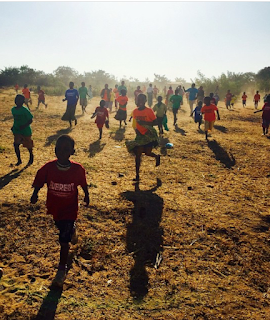“There is no greater agony than bearing an untold story inside you.” -Maya Angelou
(updated 2019)
Q: What is it like there?
 A: At first sight, it is exactly what you are probably thinking, from the moment you first land. The airport is really small, there are no terminals. When driving to the campus, you see cars, and trucks, and lots of minibusses. Minibus are small vans packed like sardines with people. There are a lot of bikes, that people use to travel and carry lots of stuff that they need, wood, chickens, straw, sugar cane. Once you get over the mental image of it being exactly like you were thinking, heard and have read, you realize it is so much more than you could imagine. It's beautiful, and welcoming, fun, and more family than most understand.
A: At first sight, it is exactly what you are probably thinking, from the moment you first land. The airport is really small, there are no terminals. When driving to the campus, you see cars, and trucks, and lots of minibusses. Minibus are small vans packed like sardines with people. There are a lot of bikes, that people use to travel and carry lots of stuff that they need, wood, chickens, straw, sugar cane. Once you get over the mental image of it being exactly like you were thinking, heard and have read, you realize it is so much more than you could imagine. It's beautiful, and welcoming, fun, and more family than most understand. One of my favorite moments in my first years. I was able to spend it with Fiki and a few other Malawians. The day started by us being told that we were to get some things for lunch on the last day for the celebration in the village. We were to get 3 things in the market. We started at 9:30am. The market we went to was only 10 minutes away and the village another 10 minutes from there. It took us over 3 hours, because in the process we dropped off some jerseys to get names put on them, then we stopped because someone wanted to taste the fruit at a mini-market we were passing, then one of the markets caught on fire while we were there, so some of the guys with us helped put it out, while we're there, there was another one of our guys getting lumber for the pen for the goats that our pastor wanted to make in the village, so they helped them do that, then we went to COTN to pick up Ben. We found out that we needed to go back and pick up someone at the college, cause their car wasn't working. We all went to the market together and went separate ways, for about 30 minutes to look for the 3 things we needed. We talked to some people that the Malawians knew and they introduced us. One of the ladies at the market kept trying to get me to buy tangerines, but I told her to ask Fiki. Fiki told her no and the lady looked at me. I told her to keep trying, cause she will buy them eventually. The lady followed us for 10 minutes, Fiki kept saying and didn't understand why the lady was so persistent, as usually when Fiki says no, people listen, and I told the lady to keep trying, and eventually, Fiki bought the tangerines (that was funny) it's her favorite fruit. We finally got what we needed and left, we went by COTN and picked up someone else, I don't know who. (This whole time Fiki and the ABC students that are with us in this small truck are getting phone calls and texts on where to go and what and who to pick up, and you never see it). We stopped at a place to get someone money, we stopped to give someone food, we stopped a lot, and it was so simple, it was exactly how I picture God would do things for his family, for the people he loves. I just was along for the ride, most Americans would be upset that we were not staying on a schedule and stopping to help so many people, and get so many things. It was actually very relaxing and nice to care for people. Just before we started to go to the village with the things we were originally told to get, we stopped again, because those jersey's I spoke about earlier, they were done, and we picked them up, paid for them and went on our way. I definitely saw God in them that day, love your neighbors. It didn't matter if they were related if they were sick if they were man, woman, child, young, old. They would have done this for several more hours and they do when we are not there. One of the saying we hear all the time is 'figure it out' and that is just what they do, they figure it out. We may have started several hours later than we would have in westernized culture, but they start right on time. TIA is another saying meaning 'this is Africa'.
A: Yes!!
Q: Will you move there, do you want to move there?
A: I don't know if I will move there, yes I would love to live there someday.
A:------> there's a map :) We are in
Lilongwe, Malawi. Which is also the capital of Malawi
Q: What was different this year than the previous years?
A: It is different every year. No matter how many people we bring, no matter how much training we go through, there is always something different that happens or will happen. I was not emotionally invested my first year, I actually thought I would skip a year, but I ended up going the next year with a much smaller group and it helped me to invest my whole self into Malawi and the people. Don't get me wrong I loved it there the first year, that is why I wanted to go back, but I was not sad to leave, and I didn't think too much about everything we did, I am really good at bottling everything up, but then they had a huge storm that destroyed a lot of things that we helped build, and that's when I knew I had to go back, that's when I became emotionally invested. The second-year was the most emotional time for me. I ended up becoming friends with a lot of the ABC students and the Live Love staff. I talk to them on a daily or weekly basis. New things the third year was the whole other church came with us, the justice team started, and the music. It is interesting how different everything is every year. My fourth year, one of my favorite students graduated and her and her family moved to South Africa to start a missionary. My fifth year, I was the only American on my team and i got 8 students to hang out with all day every day, and had a blast, I also got to go to Lake Malawi by myself with the students and no one from my church. You cannot assume anything will be the same any year, even the ABC student translator/interns change.
Q: Are there any interesting facts about Malawi or Africa that you found out while you were in Africa?
A: Yes,
-Malawi is known and called the warm heart of Africa because it is such a welcoming place, the youngest person that I have gone on a missions trip with was 5.
-Zambia-the country where we went on Safari, borders 8 other countries
-The Baobab tree also is known as the upside-down tree, is found in parts of Africa and Australia. This tree has many uses including, food from the fruit that grows on it, building shelter, barns, the inside is hollow for animals to make homes too, it also gets very large. Click on the link to read more about them.-Malawi's length is longer than Arizona.
-to make paint, they will take the ashes of a Redwood and soak them in water and salt.
-a group of zebras is called a dazzle-Lake Malawi-9th largest lake in the world, more species of fish than any other lake in the world, including cichlids (pronounced 'sick-lids') which I sold for 9 years at PetSmart. It is a meromictic lake, meaning the water layers never mix.
-Over 50% of African's are under the age of 25
Q: What is something that you would like people to understand about Malawi?
A: Something that I would like people to understand is that, Malawi in not completely a poor country. There are people who have lived in Malawi their whole lives and never stepped foot in a village, and there are people who live right next to a village and do not even realize it. And the same goes for villagers, not all of them know that their lives are different from any others, there are villages out there that no missionary or westerner, has been in. I have noticed that when I go to Malawi, or Africa in general, people think of Africa as a country rather than a continent. Not every country is going through the same thing, not every country is what you hear or have read, they have their own story, they have their own life. I am often reminded that every person has their own story and that I should ask people that I meet what their story is. And when I do, I get a different perspective of each person. ABC students are fascinating to talk to, not to stereotype, but I would have assumed that each one has a similar story. For instance: Blessings-one of the main guys who runs Live Love Malawi, he is from a village, it is where he grew up. It takes 3-4 hours to get to his village from the main road, he did not get his first pair of tennis shoes until he was 10 years old, they were red. He is the first person in his village to go to college. This year I met a girl named Zione, she came from a wealthy family, both of her parents went to college in London and got their Masters and doctorate degrees in politics and education respectively. She was never shown the life of a village, and got everything she has ever asked for from her parents.
I was writing this answer and came across a TEDx talk that I feel explains what I am trying to say. I have provided a link. The video is just over 18 minutes long, and it is worth watching. TEDx talk

















































